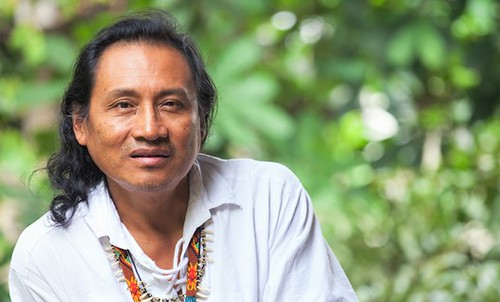It was the year 1958 and in the Urabá Antioqueño, in limits with Panama, Manibinigdiginya was born , an indigenous firstborn from the Tule community. Although his parents didn’t know it, he would be in charge almost half a century after writing a historic chapter for all the tribes of Colombia, upon graduating with honors as the first indigenous Ph.D. in the country.
Abadio Green or Manibinigdiginya’s family, knew from the time that he was very young, he would move toward his education, a rare opportunity for many native groups in Colombia. In the case of the Tule, education is only offered until fifth grade. Abadio made the crucial decision to abandon his home and begin a journey to Panama where he would finish elementary and high school. There are approximately 80,000 members of the Tule community residing there, and they have a higher guarantee of finishing their education than the 2,000 members of the community living in Colombia.
Years later, his dialectical ability, intelligence and above all his dedication brought him to graduate with a Bachelor’s Degree in Philosophy and Theology from the Pontificia Bolivariana University.
Not yet satisfied, he continued breaking down barriers. In 1986 he reached the highest ranking educational institute in the country, Universidad de los Andes.
There, Abadio carried out a masters thesis on indigenous communities throughout Colombian history, just as the world celebrated 500 years since the discovery of America.
However, when his academic accomplishments were over representative for someone of his origen, the University of Antioquia opened the doors for him to face a challenge that could be interpreted as society’s attempt to close the historical breach with vulnerable communities. Abadio would coordinate an indigenous education program, which later would become the Bachelor’s Degree in Mother Earth Studies.
It was then in 2005, with a wide range of theoretical and experiential practice, that he decided to return to roots so that his ancestors and fellow community members could benefit from a historic accomplishment for him, the university and the entire Colombian society, a doctoral thesis which would provide with an unbelievable academic title for a community lacerated by violence and omission for over five centuries.
“A claim and an important step for indigenous compatriots who are widely welcome in our country”, he concluded in his conversation with the dean of the Education Department, Carlos Arturo Sandoval.

Si tienes dudas o sugerencias, escríbenos a nuestro Whatsapp dando clic en el botón de la derecha.